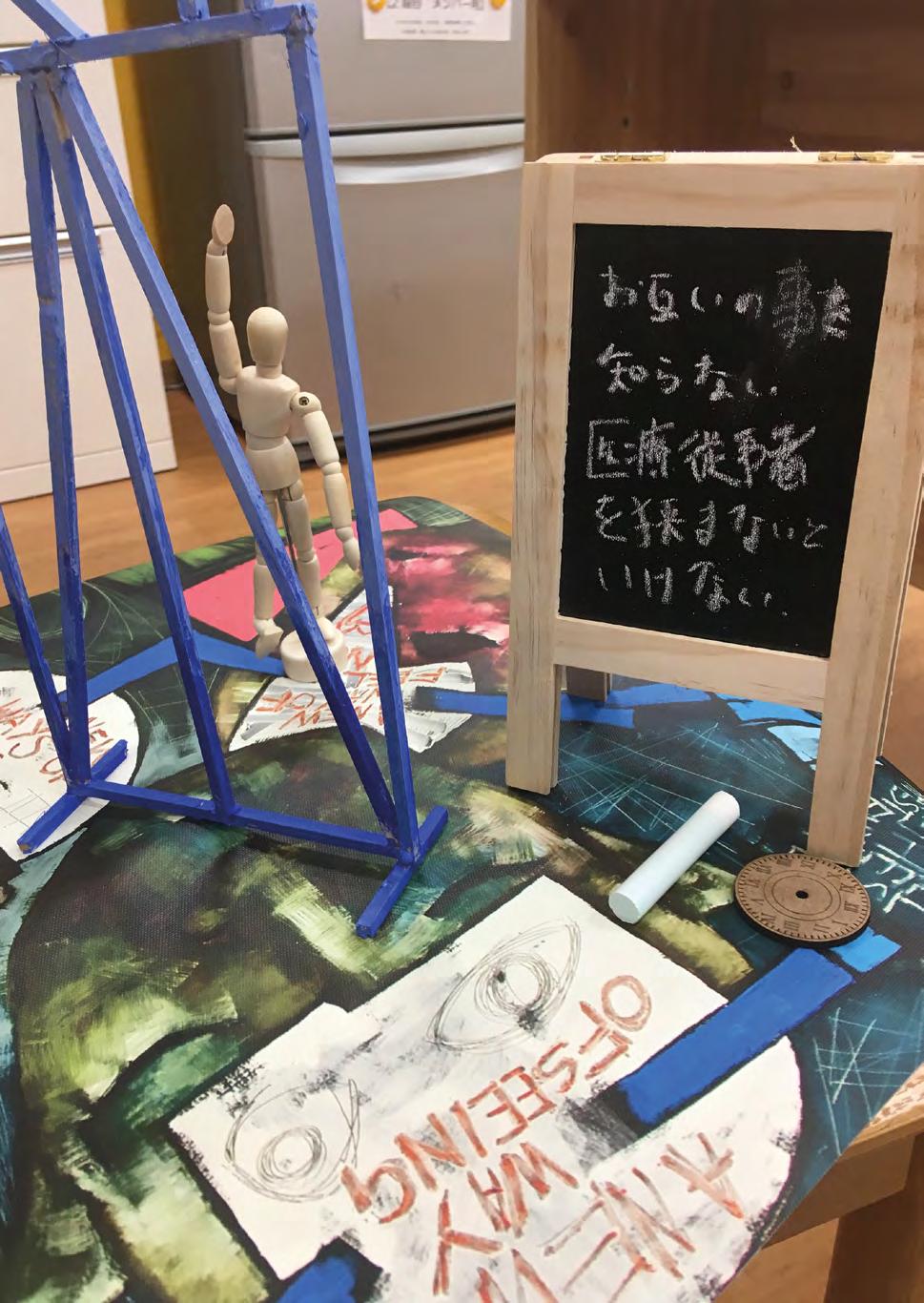
2 minute read
De-stigmatising mental ill-health through creative arts practice
How do you give a voice to vulnerable adults with mental health issues? How can the voices of the past effect change in the 21st Century? Dr Rob Ellis’ research was developed in response to the need for mental health organisations to understand the lived experience of mental ill-health and the demand to give these vulnerable adults a voice in policy-making and practice.
For more information on the research in this article email: r.ellis@hud.ac.uk and or visit pure.hud.ac.uk
Advertisement
Training session with National Trust staff at Little Moreton Hall


Patient perspectives
In 2010, Dr Ellis was invited to collaborate with Leeds City Museums and the Thackray Medical Museum on an exhibition on mental ill-health. His research placed patient perspectives at the heart of the exhibition.
This partnership with Leeds led to further work on the histories of mental-ill health and learning disabilities, including a role as Visiting Research Fellow at the Mental Health Museum. In 2013, he worked in partnership with St Anne’s Community Services and Leeds Mencap, and received funding from the Heritage Lottery Fund (HLF) and the Arts and Humanities Research Council (AHRC) for a project called ‘Heritage and Stigma’. For this project, Dr Ellis facilitated the collection of a body of research in the form of service-user testimonies, oral histories and material culture that fed into two co-produced exhibitions ‘Nothing with us: without us’ and ‘Our minds our histories’.
Absent voices
As a result of these projects, Dr Ellis began to explore the themes of patient stigma and absent voices in the presentation of public histories. This included a longer-term history of the Mental Health Museum. In 2017 Dr Ellis explored the nature of collaboration and the challenges of viewing service users as people first and foremost in the historical record. Patient/service users often left no written records behind, other than those written for them or mediated by medical professionals and administrators. The resulting article considered developments in mental health care in the past and issues that shape services in the present and stressed that the future of collaborations between historians and community groups required a closer understanding of historical voices.
Left: Feedback from a session with service users at the Mitsuaki Centre

Performance of ‘I have Strings’ – New Vic Theatre
Research impact
Through a working partnership with the New Vic Theatre in Newcastle-under-Lyme, Dr Ellis’ research led to the co-creation of a play (I have Strings) in 2018 and the ‘Bag of Tricks’ resource kit in 2019. The play has been used in schools to prompt discussion around mental wellbeing in school age children. The kit has provided training for mental health and social care practitioners in England and Japan from a range of organisations, including local authorities, NHS Trusts, the NSPCC, Mind and the Mitsuaki Centre, and provided a catalyst for organisational change in mental health provision at the National Trust. The resource has also enabled vulnerable individuals to have a voice and participate in the development of policies and procedures in such organisations.
This research has enabled social and health care providers and heritage organisations to address sector specific issues of mental ill-health and wellbeing in unprecedented ways in the UK and Japan while also empowering vulnerable individuals.










